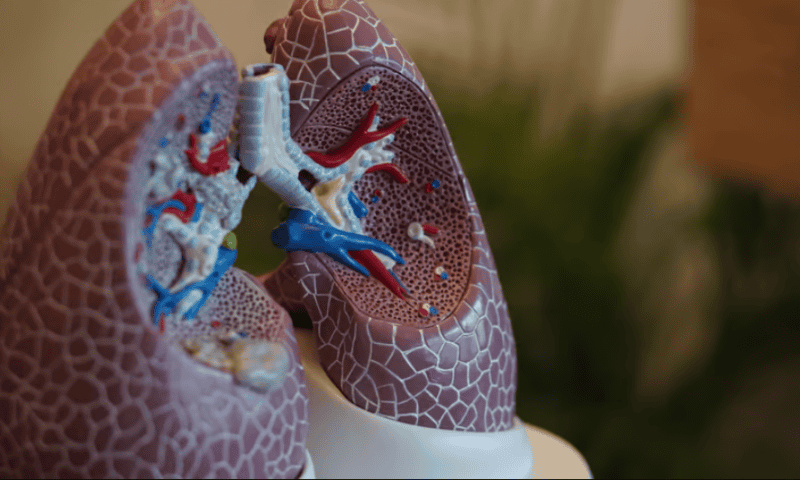Merck & Co.’s long-running effort to land a punch on small cell lung cancer (SCLC) has racked up a small victory. The drugmaker’s Daiichi Sankyo-partnered antibody-drug conjugate (ADC) ifinatamab deruxtecan (I-DXd) showed promise in the setting, offering encouragement as a late-stage trial progresses.
SCLC is one of the tumor types where Merck’s Keytruda fell short, leading the company to invest in drug candidates with the potential to move the needle in the setting. An anti-TIGIT antibody failed to deliver in phase 3 earlier this year. And, with Akeso and Summit’s ivonescimab emerging as a threat to Keytruda, Merck may need one of its other assets to step up to compensate for the threat to its highly lucrative blockbuster.
I-DXd, a molecule central to Merck’s attack on SCLC, has come through in another early test. Merck and Daiichi reported an objective response rate (ORR) of 54.8% in the 42 patients who received 12 mg/kg of I-DXd. Median progression-free and overall survival (PFS/OS) were 5.5 months and 11.8 months, respectively.
The update comes 12 months after Daiichi shared an earlier cut of the data. In the previous statement, Daiichi presented pooled data on 21 patients who received 6.4 to 16.0 mg/kg of the drug candidate in the dose-escalation stage of the study. The new results are in line with the earlier update, which featured a 52.4% ORR, 5.6 month median PFS and 12.2 month median OS.
Merck and Daiichi shared new details in the latest release. The partners saw intracranial responses in five of the 10 patients who had brain target lesions at baseline and received a 12 mg/kg dose. Two of the patients had complete responses. The intracranial response rate was higher in the six patients who received 8 mg/kg of I-DXd, but otherwise the lower dose performed worse.
The dose response supports the decision to take 12 mg/kg into phase 3. Daiichi began enrolling the first of a planned 468 patients in a pivotal study of I-DXd earlier this year. The study has an estimated primary completion date in 2027.
That timeline puts Merck and Daiichi at the forefront of efforts to develop a B7-H3-directed ADC for use in SCLC. MacroGenics will present phase 2 data on its rival candidate later this month but it has selected prostate cancer as its lead indication, with SCLC among a slate of other tumor types the biotech plans (PDF) to study in another trial.
Hansoh Pharma has phase 1 data on its B7-H3 prospect in SCLC but development has focused on China to date. With GSK licensing the drug candidate, studies intended to support the registration of the asset in the U.S. and other parts of the world are now getting underway. Bio-Thera Solutions has another B7-H3-directed ADC in phase 1.

